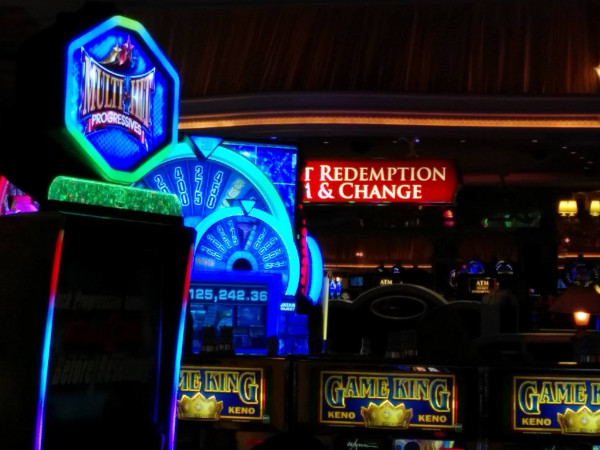Much has been written about the many failings of Batman vs. Superman: Dawn of Justice, the joyless and senseless misuse of some of the world’s favorite characters, a film whose desperation to be the springboard for a procession of billion-dollar movies was palpable. I wouldn’t feel the need to pile on if it were merely a bad movie; that would be a simple shame and there wouldn’t be much more for me to say that others haven’t already said better. But it isn’t merely a bad movie: it’s nearly a great one. And that makes it worse, and worth writing about.
[spoilers follow]
This could and should have been a movie about fear and bravery. The thesis of this hypothetical better movie is right there in the ungodly mess of the actual movie: as Batman thrashes Superman, he growls, “You’re not brave. Men are brave.” Meaning, of course, that bravery requires fear. No deeds, even heroic ones, are brave if not performed in the face of fear. Batman cannot imagine Superman feeling fear, being (heretofore) invulnerable.
But fear is something Bruce Wayne understands all too well. His fear in that alley, watching his parents be murdered, was so profound it led him on a lifelong quest to master and overcome that fear, to never feel it again; to be so strong that fear could not touch him; to bend fear to his own purposes, reflect it back onto those who would dish it out.
He succeeded. Bruce Wayne has not felt debilitating fear his whole adult life… until the arrival of Superman, a potential threat he has no hope of defeating; something he cannot be stronger than. And now fear begins to work on Bruce Wayne the way it has worked on America these past many years: he prepares to betray his bedrock principles, to make a lethal preemptive strike in order to feel safe again. (Yes, I’m referring to Batman’s refusal to kill as a bedrock principle. Changing Batman into someone who doesn’t casually blow away bad guys like he’s James Bond is just one of the many changes this movie would need in order to improve.)
Less principled, but no less afraid, is Lex Luthor. He is the dark-mirror version of Bruce Wayne. He too has a deep-seated need to feel powerful. He too uses his vast wealth to create devices that enhance his own abilities. And he, too, doesn’t like the feeling that Superman gives him. It is telling (or in a better version of this movie, it would be) that Batman and Luthor are united in their goals and methods for much of the film. We all know that Luthor is evil. Now look at what fear has done to our beloved hero Batman: it is turning him into Lex Luthor.
Batman surprises Superman with a variety of Kryptonite-based weapons. With determination and a tremendous effort, Batman overpowers Superman. He is close to delivering the killing blow when, at the last moment, he redeems himself, turns away from the dark side, and spares Superman. Why does he? In the actual film, it’s because of a dumb coincidence: Bruce and Clark both have moms named Martha, and (in a highly contrived and out-of-character bit of dialog) Superman catches Batman off-guard by uttering that name out of context. That coincidence, the linchpin of this crucial turning point, is the reason audiences have to endure yet again the murder of the Waynes at the beginning of the movie—so that with his dying breath, Thomas Wayne can remind us of his wife’s name. In the better film that they didn’t make, Superman, facing his end, still begs Batman to save his mother, and this triggers the realization that Superman does feel fear after all—not fear for his own skin, but fear for the ones he loves. Far from posing a threat to humanity, Superman has that essential connection to humanity that Batman himself had nearly lost. Batman knows firsthand how love turns to fear—a much better reason to stage the Wayne murder again. For him, fear turned to power, which then turned to cruelty. It is an act of bravery for Batman to abandon cruelty in spite of his fear of Superman, and turn back in the direction of love.
Finding righteous common cause, together Batman and Superman overcome the real threats: those like Lex Luthor whose fear leads them to believe, and whose power allows them to convince others, that sacrificing the principles of justice will somehow make everyone safer. There but for the remaining spark of compassion in his heart nearly went Bruce Wayne.
This would have been a better movie. But even more than that, it’s a story that needs to be told to fearful, powerful America, which in its recent history has lurched towards cruelty and has not yet remembered: it’s supposed to be the home of the brave.
Update
My friend Bart thought this sounded like it would depend on interior monologue and asked (on Facebook) how I would stage it. My reply:
I would begin the film not with the Wayne murders but with a fantasy sequence where young Bruce Wayne disarms Joe Chill and saves his parents. When Martha scolds him for taking a dangerous chance, Bruce grins and tells her, “I had to save my mother.” Cut to the actual scene: Bruce terrified in the aftermath of the murders, his parents dead on the ground, a kindly cop telling him he has to be brave.
Later in the movie, adult Bruce has one of his usual nightmares. As Batman, he battles through a bunch of bad guys to rescue… his mother! Who again scolds him for taking dangerous chances. Batman grins (which is suitably weird under the cowl) and tells her, “I had to save my mother.” The dream image of Martha becomes bloody and Bruce wakes up with a start.
Finally, during the confrontation with Superman, it’s Superman’s turn to plead, “I have to save my mother!”
This might not mean much to the Batman we meet at the beginning of the film, who has turned cynical and cruel after twenty years of crimefighting in Gotham with little to show for his efforts. But beginning early in the story, Bruce Wayne has a series of tantalizingly brief meetings with an exotic, strikingly self-possessed woman named Diana, and for the first time in decades, his obsession with fighting crime begins to yield to an entirely different kind of fixation.
In fact, Diana Prince has Bruce Wayne’s number. He’s the reason she came to Gotham. He is an open book to her, as all men are to a certain kind of woman. She has watched as Batman has begun to lose himself in his dark mission and decided to take matters into her own hands. In her calculated short meetings with Bruce (during which she playfully teases him with phrases like “crusader” and “detective,” making him wonder what she knows) she probes, and deftly adjusts, his psyche. Her questioning leads Bruce to realize that he has dwelt on the same single memory of his mother for all these years: variations on the scene in the alley. Diana helps to unlock memories of earlier, happier times. Bruce remembers that before fear came love.
So when Superman tells him, “I have to save my mother!” it resonates in multiple ways. “There are other Kryptonians here?” Batman asks. “No… my human mother. She adopted me. She raised me. And she’s in trouble.” “What’s her name?” “Martha.”
Batman couldn’t ask for a clearer sign. Superman is not a threat to humanity. He’s a friend and a partner.
…It’s possible I’ve given this more thought than I really should. But at least in this version of the story, Wonder Woman uses her compassion (to “stop a war with love”!) and isn’t simply a “generic warrior woman” (c.f. What Film and TV Adaptations Don’t Get About Wonder Woman).


 Last night I dreamed I was at the beach with my kids. We saw a food shack with its menu painted on a board in front, and one item on the menu was a “Tomato Rahway.” “Do you know Tomato Rahways?” I asked my kids in the dream. “We had them when I was little. It’s an open-faced grilled cheese sandwich with a slice of tomato under the cheese.”
Last night I dreamed I was at the beach with my kids. We saw a food shack with its menu painted on a board in front, and one item on the menu was a “Tomato Rahway.” “Do you know Tomato Rahways?” I asked my kids in the dream. “We had them when I was little. It’s an open-faced grilled cheese sandwich with a slice of tomato under the cheese.” Well, guess what? Kill Ralphie! lives again! I’ve taken that old pastime and turned it into a fun new website. Please check it out, contribute chapters, and enjoy:
Well, guess what? Kill Ralphie! lives again! I’ve taken that old pastime and turned it into a fun new website. Please check it out, contribute chapters, and enjoy: